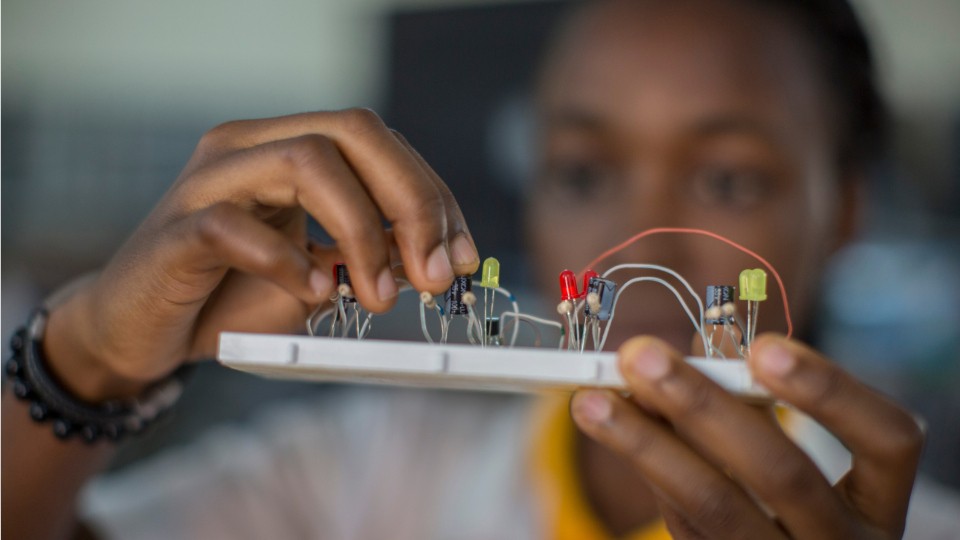Electrical Engineers
Design Engineer, Electrical Design Engineer, Electrical Engineer, Project Engineer
 Select a military branch to see samples.
Select a military branch to see samples.
Civil Engineer; Civil Engineer, Bomber; Civil Engineer, Explosive Ordnance Disposal Engineer; Civil Engineer, Industrial Engineer; Civil Engineer, Special Operations; Developmental Engineer, ABM; Developmental Engineer, C2ISREW; Developmental Engineer, Flight Test; Developmental Engineer, RPA; Electrical Power Production
Army Astronaut; Construction Engineering Technician; Marine Engineering Officer; Prime Power Production Specialist; Space Operations; Systems Automation Acquisition and Engineering
No similar titles were found.
Air Traffic Control Systems Officer; Electronics Engineer; Ordnance Systems Engineer; Tactical Data Systems Officer; Technical Information Operations Officer
Aeronautical Engineering Officer, Aircraft Mechanical, Electronic, Electrical and Safety Equipment; Aviation Systems; Electronic Equipment Installation, Maintenance and Repair Officer; Electronic Inspection and Survey Officer; Electronics Engineering Officer; RL - Naval Reactors Engineer; Ship's Electronic Material Officer; Weapons and Ammunition Production Officer; Weapons Maintenance Officer; Weapons Research Planning Officer
Civil Engineer; Civil Engineer, Electrical Engineer; Developmental Engineer; Developmental Engineer, Electrical/Electronic; Developmental Engineer, Systems/Industrial/Human Factors
What they do:
Research, design, develop, test, or supervise the manufacturing and installation of electrical equipment, components, or systems for commercial, industrial, military, or scientific use.
On the job, you would:
- Design, implement, maintain, or improve electrical instruments, equipment, facilities, components, products, or systems for commercial, industrial, or domestic purposes.
- Oversee project production efforts to assure projects are completed on time and within budget.
- Direct or coordinate manufacturing, construction, installation, maintenance, support, documentation, or testing activities to ensure compliance with specifications, codes, or customer requirements.
Knowledge
Engineering and Technology
- product and service development
- computers and electronics
Arts and Humanities
- English language
Math and Science
- arithmetic, algebra, geometry, calculus, or statistics
- physics
Manufactured or Agricultural Goods
- manufacture and distribution of products
Skills
Basic Skills
- writing things for co-workers or customers
- reading work related information
Problem Solving
- noticing a problem and figuring out the best way to solve it
People and Technology Systems
- figuring out how a system should work and how changes in the future will affect it
- measuring how well a system is working and how to improve it
Abilities
Verbal
- communicate by writing
- read and understand what is written
Ideas and Logic
- make general rules or come up with answers from lots of detailed information
- notice when problems happen
Math
- choose the right type of math to solve a problem
- add, subtract, multiply, or divide
Attention
- pay attention to something without being distracted
Personality
People interested in this work like activities that include practical, hands-on problems and solutions.
They do well at jobs that need:
- Innovation
- Achievement Orientation
- Intellectual Curiosity
- Cautiousness
- Attention to Detail
- Dependability
Technology
You might use software like this on the job:
Analytical or scientific software
- Minitab
- The MathWorks MATLAB
Word processing software
- Microsoft OneNote
- Microsoft Word
Computer aided design CAD software
- Autodesk AutoCAD Civil 3D
- Autodesk Revit
Education
Education: (rated 4 of 5)
bachelor's degree or
associate's degree
usually needed
associate's degree
usually needed
Job Outlook
Bright
New job opportunities are very likely in the future.
Explore More
- Electrical & Electronic Engineering Technologists & Technicians
- Electrical & Electronics Repairers, Commercial & Industrial Equipment
- Electronics Engineers
- Mechanical Engineering Technologists & Technicians
- Mechanical Engineers
You might like a career in one of these industries:
See more details at O*NET OnLine about Electrical Engineers.






